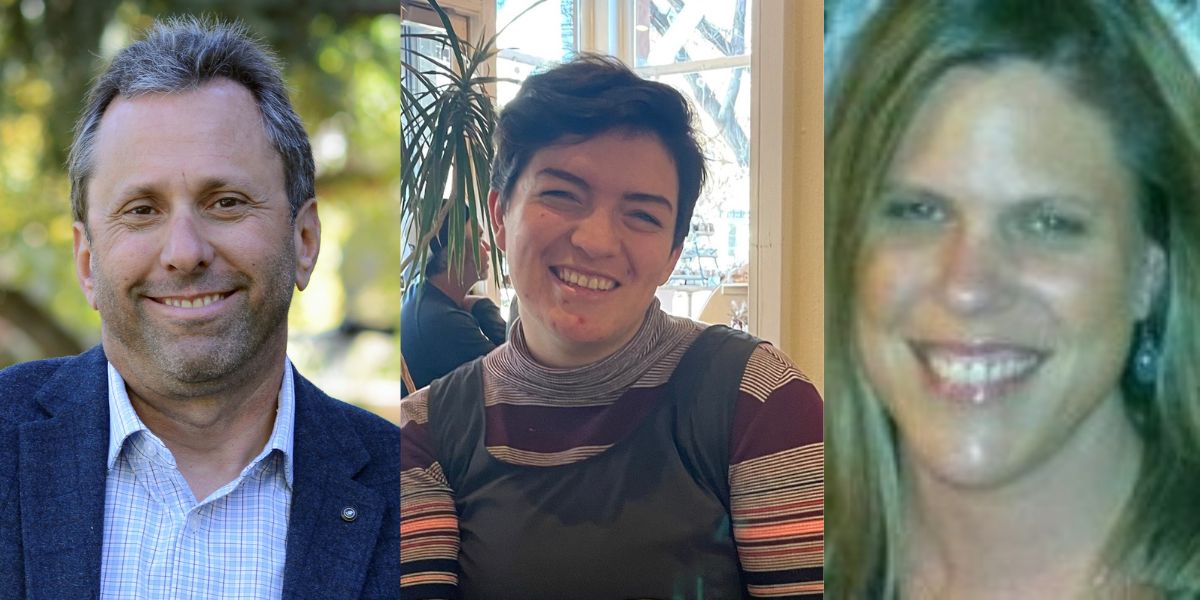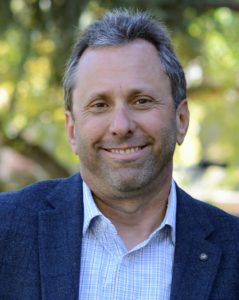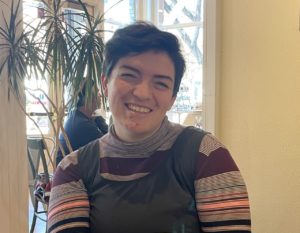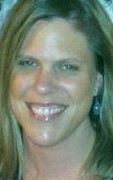
“This next generation is just smarter. They get it,” said Marc Winokur (‘00, ‘04), director of the Social Work Research Center in the School of Social Work at Colorado State University, about the students he mentors. “They’re much more connected with what’s happening in the world, and what needs to happen.”
By providing real-world, hands-on research and evaluation projects for students, the Social Work Research Center is not only moving the field of social work forward but is also training a new generation of professionals to apply their research and evaluation skills beyond the center, and as social work practitioners.
Those students who ‘get it,’ are shaping the future of social work. “The students we mentor now are way beyond the level of understanding and skill that I had at the same age. And they want to jump right in,” Winokur said.
The Social Work Research Center works with human services departments and community-based agencies throughout Colorado on research and evaluation of child maltreatment prevention policy and programming, to continually improve outcomes for children, youth, and families throughout the state. “Research for results,” Winokur said of the center’s purpose.
“We help our partners answer complex questions about their work so they can better serve their stakeholders. Our work drives policy and practice to a place that is more grounded in evidence and data. We join that with practice wisdom – the intuition and expertise practitioners have is invaluable.”
An outsized impact

Winokur says the students who work with the Social Work Research Center go on to have an outsized impact on the field, a “multiplier effect.”
“When they go into the field, they’re more marketable. Not only are agencies getting a great social worker, but they’re also getting a great social worker who knows research and evaluation,” he said. “It’s a multiplier effect. Now, that student has more skills and opportunities to make an impact. They can lead that agency or contribute to its mission in other ways.”
Discovering social work research
“They gave me so many opportunities to grow both as a researcher, and as a leader,” Courtney Martinez, a Master of Social Work student who currently works with SWRC said of the center’s leadership. Martinez holds an undergraduate degree in math. “I like to be presented with a large, abstract problem, and try to understand it and creatively solve it,” said Martinez. “So, I tended more towards abstract math, instead of applied math.”
After finishing her undergraduate degree, Martinez was not excited about a career in research. “I didn’t want to sit at a computer all day,” she said. So, she got a job with a youth development agency. That helped her realize, “I really like working with kids on social and emotional skills – I think that’s an amazing opportunity to shape the next generation.” For Martinez, a career pivot was in place, and an MSW from CSU was her next step. “I was going to be a school social worker,” she said.

When she started her MSW, Martinez did not know that research and evaluation were part of the discipline. When it came time for her field placement, she saw the Social Work Research Center as an option. “Wow, this is right up my alley,” she said. “It combined the analytical and creative problem-solving part of me, along with my desire to work in social and emotional spaces.”
After working at the Social Work Research Center, her view of research has expanded. “I can do research, and as a part of that, I can work with people, try to understand human experiences, and help people.”
The Social Work Research Center launches a career
Kari Batchelder (‘07) started on the ground floor. She was SWRC’s first full-time employee after working at the center as a student and earning her MSW from CSU, and now is the program and services manager for the Colorado Division of Child Support Services, where she manages multiple collaborative teams to guide policy and programming at the state level. “I owe a lot to that center, and to Marc,” she said.
Batchelder came to CSU’s School of Social Work from the east coast. After completing her undergraduate degree in psychology and working in community support settings, Batchelder chose CSU’s MSW program because of the flexibility it provides. She planned to use the degree to return to a client-facing setting in a management or leadership role.
Batchelder wanted to build on the foundations of research she explored during her undergraduate studies. “I really liked the advanced generalist structure and the multiple research opportunities,” she said.

Throughout her time in the MSW program and working at SWRC, her visions for her future expanded. “I realized I had other strengths in research and evaluation as well,” she said. “There are lots of wonderful people who could provide direct care, but not a lot of people could also do the research and evaluation work that I was also getting better and better at,” said Batchelder. “That was really eye-opening – I had never considered that as a possible career path.”
Now, Batchelder uses her research and evaluation skills to advocate for policy changes to improve outcomes for recipients of social services to the Colorado legislature and governor’s office. “Working at SWRC helped me appreciate the value of research and evaluation in the public sector regarding funding and decision-making. When you’re trying to make a case to a government or state agency, having strong evidence and data is imperative,” she said.
Research that is applied
The Social Work Research Center team takes an applied approach to their work. “We like to have practitioners drive the process. Then we come in to help them where they see a need – that greatly increases the likelihood that the research is applied effectively,” said Marc Winokur.
“Sometimes research can be like an ivory tower, and SWRC does an excellent job of removing those barriers and listening to folks on the ground,” said Martinez. “We can make theoretical postulations and analyze numbers all we want, count how many times ‘helpful’ was mentioned in a survey, but, if we’re not actually listening to the content, listening to people’s experiences, and considering context, how good is that research?”
Research for impact
Martinez says her work with SWRC directly impacted families in Northern Colorado. With one project, Supported Families, Stronger Community, she helped families by increasing awareness for a tool that connects Larimer County agencies and providers through a coordinated referral process. “I was able to recommend that service to families since I helped on the evaluation of that program,” she said.
“I felt almost spoiled in my position,” said Martinez. “They fostered my interests and let me explore different things I was interested in.” One of those things was anti-oppression work. “I did a deep dive into anti-oppressive hiring practices,” she said. “I used that research and work to run a hiring process [for an outside consultant] myself.”
Batchelder says she “still uses all the skills she learned at SWRC.” Now, she applied them to advancing a policy change, through the application of data and evidence, that could reduce children’s time in out-of-home care by six months.
Not only research, but practice as well
“For the alumni of the center who go into practice, it enhances their effectiveness as practitioners and how they serve their communities as well,” said Winokur.
When asked if participating in SWRC is valuable, even if someone does not plan on a career in research, Batchelder says, “Absolutely. It gives you a different lens. The prevailing thought about research and evaluation is ‘ah, it’s boring,’ but it gives you a unique perspective and shows you how un-boring it can be. And, quite frankly, how important and vital it can be to move policy and programming forward to better help families.”
Future leaders
Winokur shared that SWRC has increased the difficulty and complexity of the work that students do, with literature reviews on one end of the spectrum and driving their own research projects on the other. “Going through the center gives students a sense of confidence in the work they do, and activates them to launch after graduation,” he said.
“The alumni of the center that I’ve connected with professionally in the field, I can tell that their value is enhanced, vis-a-vis their work with the center, and that shows the value of the Social Work Research Center as a training ground for the next generation of leaders in the field,” said Winokur.
While Martinez is not sure what her career will be after graduation in Spring 2023, SWRC has opened new opportunities for her. “They have helped me be better at asking questions. You don’t know what you don’t know,” she said. “If I go into research, I’m going to keep my feet planted.”
The School of Social Work is part of CSU’s College of Health and Human Sciences.